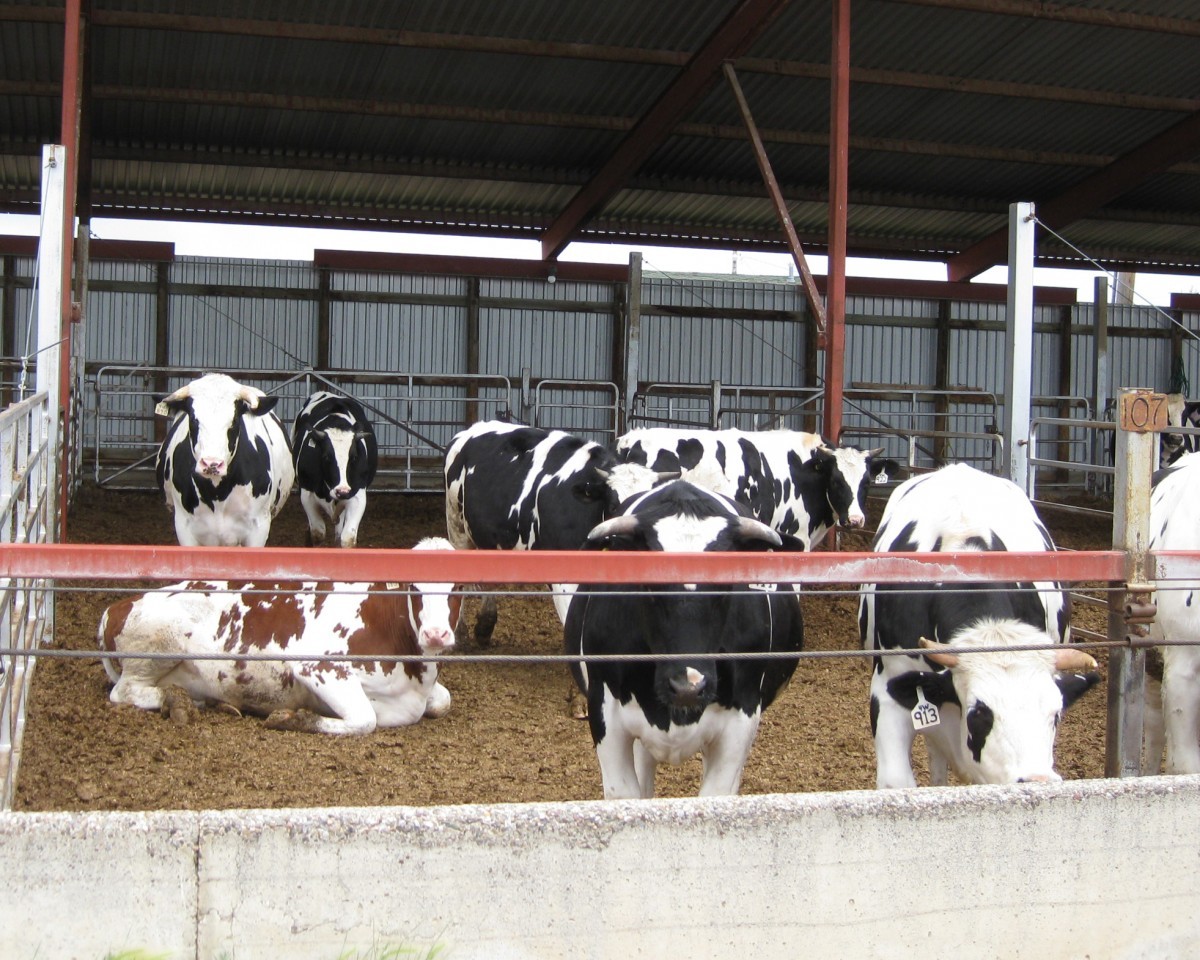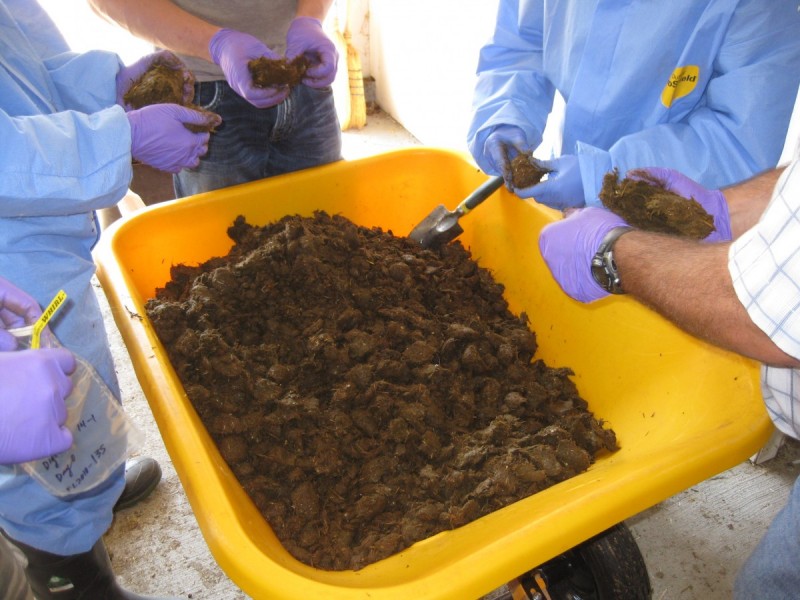
Rethinking stink about antibiotics in manure
Antibiotics and manure. You probably don’t think of them at the same time. But across North America, manure and antibiotics often share the same pile.
Antibiotics ward off diseases. Low levels of antibiotics are also often fed to livestock to improve their growth. However, much of the antibiotics fed to livestock goes to waste–literally.
“Often, 90% or more of the antibiotic is excreted, according to previous studies,” says Francis Zvomuya. “Manure containing these is then used as fertilizer on crops.” Zvomuya is a researcher at the University of Manitoba in Winnipeg.
And that’s not the end. Once applied with manure to crops, those antibiotics are in the natural environment, mixing with air, soil, and water. This can lead to antibiotic-resistant bacteria, a public health concern across the world.

Preparing manure for composting. Researchers found composting manure degraded up to 99% of antibiotics present. Photo credit Andrew Olson.
One way to prevent such a chain reaction is to make sure antibiotics are broken down before they reach the field, for example, via composting or stockpiling. The question is, “How quickly are these antibiotics breaking down during such handling?” says Zvomuya.
Traditionally, researchers have tried to answer this question by adding antibiotics to antibiotic-free manure. They then use the manure as fertilizer or compost it before applying to crops and test how long it takes the antibiotics to degrade. The process is cost-effective and efficient. However, it doesn’t accurately represent how antibiotics get to the manure pile in the real world.
To find the real scoop, researchers fed combinations of antibiotics to steers. Then they collected their droppings. A second group of steers was not fed antibiotics. Researchers added the same antibiotic combinations to these steers’ antibiotic-free manure. Then it was a matter of time: Which antibiotics would degrade faster during composting?
Results were mixed. For some antibiotics, the excreted antibiotics degraded more quickly. Other antibiotics degraded faster when added directly to manure.
That result is to be expected, says Inoka D. Amarakoon, first author of the study. Amarakoon is a Ph.D. student at the University of Manitoba. When antibiotics pass through the digestive system of animals, they undergo different chemical and biological changes. “That can affect how quickly they degrade once they are excreted,” says Amarakoon.
Also, compared to the antibiotics added to manure, excreted antibiotics can be arranged differently within the manure. “That can change whether the antibiotics are even available for chemical or biological degradation,” says Amarakoon.
Zvomuya, Amarakoon, and their colleagues at Agriculture and Agri-Food Canada found that composting manure for 30 days reduced the concentrations of the antibiotics by at least 85%. Some results were as high as 99%. “This shows that composting manure before using it as fertilizer can reduce the spreading of antibiotics to the environment, thus reducing the risk of antibiotic resistant bacteria,” says Zvomuya.
Zvomuya recommends real-world accuracy over convenience. “We need to exercise caution while looking at results from studies in which antibiotics are added to excreted manure,” he says.
Read more about this study in the Journal of Environmental Quality.






